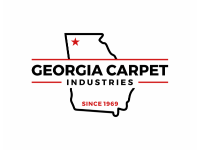What Glue To Use
What Glue To Use For Hardsurface Flooring
The Difference In Adhesives
Before gluing down a product, please read this information. There are many types of adhesives to use when installing hardsurface flooring. Using the wrong one could result in a disaster. Glues are pretty much permanent once they cure or dry. As the flooring industry moves forward, adhesives get more and more advanced. But the wrong adhesive could cost you in the long run.
3 Types of Adhesives to Consider
- Moisture Cured Urethane - This adhesive is exactly what it says, moisture cured. Most all the water is depleted from the adhesive. Its really tacky and doesn't come up easily and is very hard to work with. Once its dried, it will take a crow-bar to pull the planks up. Moisture cured urethane can be used with any wood product like engineered and solid hardwood. You can use it on steps as well. It should NOT be used on any vinyl, carpet tile, or LVP product. ITs not created for that and the flooring product will pull loose. IMPORTANT NOTE: If this glue is dropped on top of a hardwood product with a UV cured finish (all hardwoods), then REMOVE IT IMMEDIATELY with mineral spirits or a recommend wood cleaning wipe. Failure to do so immediately will result in spots permanently left on the finish, that are impossible to remove.
- Acrylic - The easiest of all adhesives to work with, yet doesn't have the greatest bond strength. The most economical, yet could cost you more if not careful. Acrylic has moisture in it so its not the best option for hardwoods being glued down below grade. The only time we would recommend using acrylic adhesive is doing an upstairs room with engineered flooring. The problem with acrylic glue is the moisture inside it. In the hardwood industry, we try to stay away from moisture or water. Its hardwood's worst enemy. Like Kryptonite to Super Man. Therefor using glue that contains moisture can be counterproductive. If the conditions are right, meaning there's no moisture in the sub floor or slab, then acrylic can be used. Thorough moisture test should be conducted before proceeding.
- Pressure Sensitive Adhesive - A PSA adhesive is a tricky adhesive. Its very tacky and strong, so it can be spread very thin, and achieve goo results. PSA should only be used for vinyl and LVP/LVT products, since these products are very porous and are easily controlled. When using a PSA, please read the instructions on the pail carefully. PSA have a FLASH time, which is the point at which the floor is the most stable for adhering products together. Once the adhesive is spread out, and its flash point is achieved, the product can be placed on top of the PSA then pressed or rolled over with a 100 lb roller. This strength of the adhesive is determined by pressing it to the products, hence the name "Pressure Sensitive Adhesive".
- All-In-One - This is most costly and most recommended product in the hardwood flooring market. An all-in-one adhesive conceives sound dampening, insulation, moisture protection, and glue....all together with one swipe of the trowel. It can be used on any sub-floor or slab surface as long as the surface doesn't exceed the maximum amount of moisture the adhesive will cover. This is a great product for customers who have moisture issues such as Florida residents, Texas residents, and any home located near a body of water like the ocean, or great lakes, even small lakes or ponds. If you want peace of mind, an All-In-One adhesive is the way to go.


